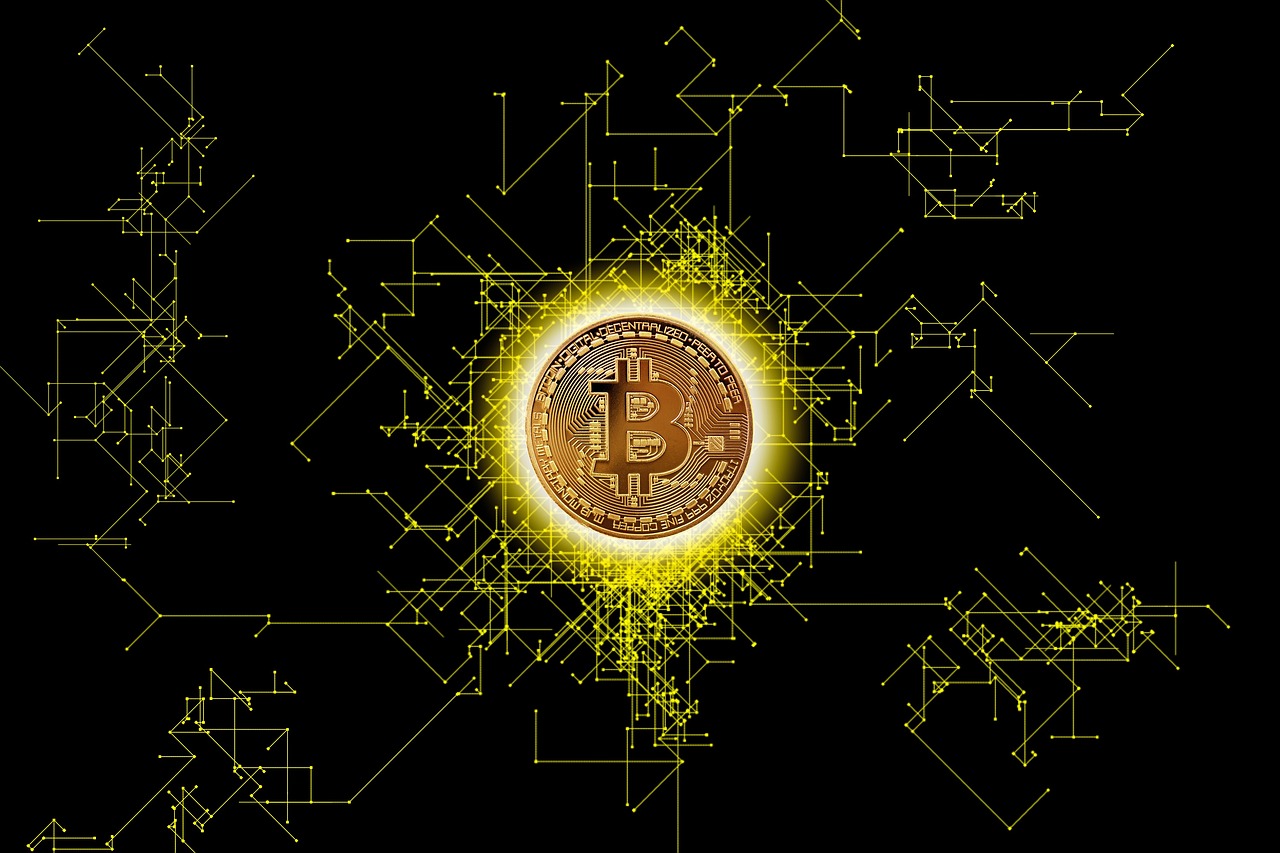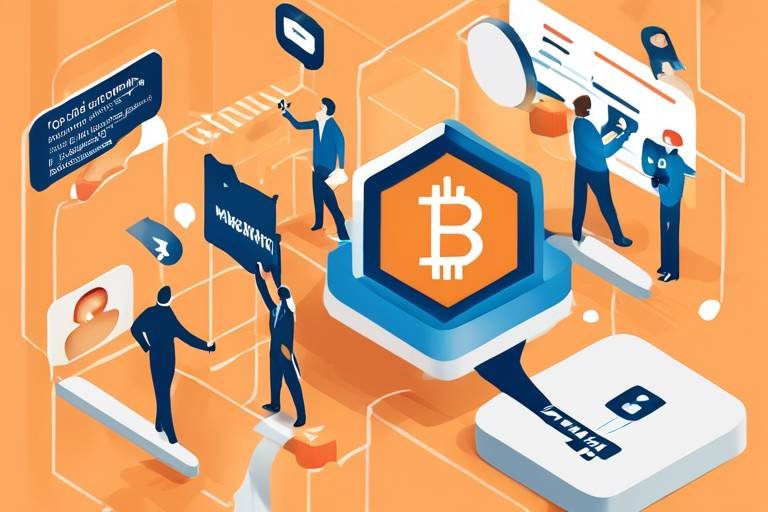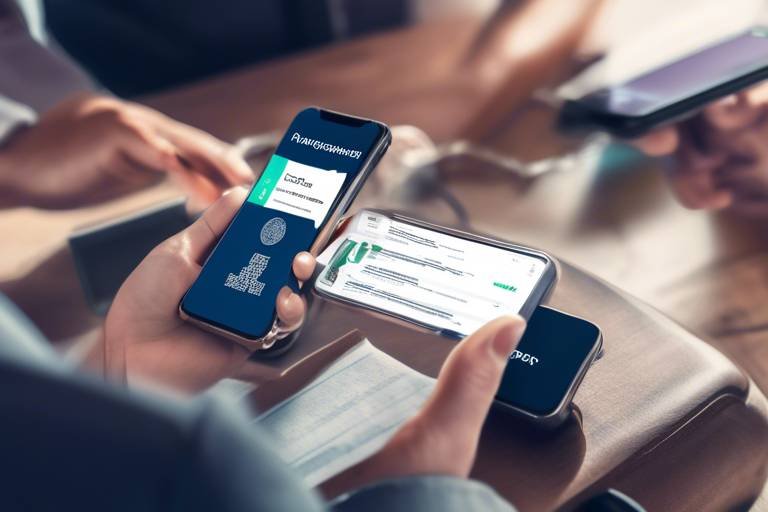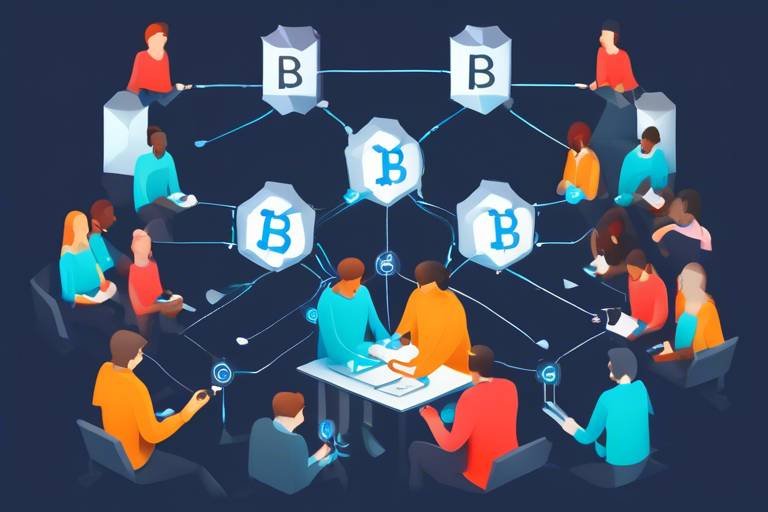How Blockchain is Transforming the Telecommunications Industry
The telecommunications industry is undergoing a seismic shift, and at the heart of this transformation is blockchain technology. Imagine a world where your data is secure, transactions are instantaneous, and customer experiences are seamless. Sounds like a dream, right? Well, this dream is becoming a reality as telecom companies begin to embrace blockchain. With its decentralized nature, blockchain offers a solution to many of the challenges faced by service providers today, from security threats to operational inefficiencies. In this article, we will explore how blockchain is not just a buzzword but a revolutionary tool that is reshaping the telecommunications landscape.
As the demand for faster, more secure communication continues to grow, telecommunications companies are increasingly looking to blockchain technology as a viable solution. The key drivers behind this trend include the need for enhanced security, the desire for improved operational efficiency, and the push for better customer experiences. With the rise of digital services, telecom providers are tasked with managing vast amounts of sensitive data, making them prime targets for cyberattacks. By integrating blockchain, companies can create a more secure environment that protects user information and builds trust.
Moreover, the adoption of blockchain can streamline operations significantly. Traditional methods of handling transactions and data management in telecom are often cumbersome and prone to errors. Blockchain offers a transparent and immutable ledger that can simplify these processes, making them faster and more reliable. As a result, telecom companies that embrace this technology are likely to gain a competitive edge in a rapidly evolving market.
One of the most compelling advantages of blockchain in telecommunications is its ability to enhance security. In an age where data breaches and fraud are rampant, the need for robust security measures has never been greater. Blockchain's decentralized architecture means that data is not stored in a single location, making it significantly harder for hackers to access sensitive information. This is a game-changer for telecom companies that handle vast amounts of customer data daily.
Decentralized identity management is a critical aspect of blockchain technology that can revolutionize how telecom companies manage user identities. By allowing users to control their own identity data, blockchain minimizes the risk of unauthorized access. Instead of relying on a centralized database, which can be vulnerable to attacks, telecom providers can leverage blockchain to create a secure, user-centric identity management system. This not only protects customer data but also enhances user trust and loyalty.
Identity theft is a growing concern in the digital age, and telecommunications companies are not immune to its effects. Blockchain technology can significantly reduce the risks associated with identity theft by ensuring that customer data is encrypted and securely stored. With blockchain, each transaction is recorded on a public ledger that is transparent yet secure, making it nearly impossible for malicious actors to alter or steal data without detection. As a result, customers can enjoy peace of mind knowing that their personal information is safe.
Another benefit of using blockchain for user verification processes is the improvement in efficiency and accuracy. Traditional verification methods can be time-consuming and prone to errors, leading to frustrated customers and potential revenue loss for telecom providers. By implementing blockchain, companies can automate the verification process, ensuring that users are quickly and accurately verified. This not only enhances the customer experience but also reduces operational costs associated with manual verification methods.
Operational efficiency is crucial for telecom companies striving to stay competitive. Blockchain can streamline various processes, including billing, settlements, and contract management. For instance, with blockchain, billing can be automated and made more transparent, reducing the likelihood of disputes and enhancing customer satisfaction. The use of smart contracts can further simplify contract management, ensuring that all parties involved adhere to agreed-upon terms without the need for intermediaries.
Smart contracts are another exciting application of blockchain technology in the telecommunications industry. These self-executing contracts automatically enforce and execute agreements based on predefined conditions, eliminating the need for manual intervention. This not only speeds up processes but also reduces the potential for disputes between service providers and customers.
Automating service agreements through smart contracts can bring significant benefits to telecom companies. By ensuring compliance and reducing the chances of human error, smart contracts can lead to smoother transactions and better customer relationships. Imagine a world where service agreements are executed instantly, with all parties having access to the same transparent information. This level of efficiency can drastically improve the overall customer experience.
Roaming agreements, which allow customers to use their mobile devices while traveling abroad, can also benefit from smart contracts. Traditionally, these agreements involve complex negotiations and lengthy processes. However, with blockchain technology, telecom companies can simplify and expedite cross-border transactions, making it easier for customers to stay connected while traveling. This not only enhances customer satisfaction but also opens up new revenue streams for telecom providers.
- What is blockchain technology?
Blockchain is a decentralized digital ledger that records transactions across many computers securely and transparently.
- How does blockchain enhance security in telecommunications?
By decentralizing data storage, blockchain reduces the risk of data breaches and unauthorized access.
- What are smart contracts?
Smart contracts are self-executing contracts with the terms of the agreement directly written into code.
- Can blockchain reduce operational costs for telecom companies?
Yes, by automating processes and improving efficiency, blockchain can significantly lower operational costs.

The Rise of Blockchain in Telecom
The telecommunication industry is experiencing a seismic shift, and at the heart of this transformation is blockchain technology. Once viewed as merely the backbone of cryptocurrencies, blockchain is now emerging as a game-changer for telecom providers. Why, you ask? The answer lies in its ability to address some of the most pressing challenges faced by this sector. From enhancing security to improving operational efficiency, blockchain offers a suite of solutions that are hard to ignore.
One of the key drivers behind the rising adoption of blockchain in telecom is the escalating demand for secure data management. With the increasing frequency of cyber-attacks and data breaches, telecom companies are under immense pressure to safeguard sensitive customer information. Blockchain's decentralized nature ensures that data is not stored in a single location, making it significantly harder for hackers to access. Moreover, the transparency and immutability of blockchain records provide an additional layer of trust, which is crucial for both service providers and customers.
Another factor propelling blockchain into the telecom spotlight is the need for cost reduction. Traditional systems often involve multiple intermediaries, leading to increased operational costs and inefficiencies. By utilizing blockchain, telecom companies can streamline processes, reduce the need for third-party verification, and ultimately lower costs. Imagine a world where billing disputes are resolved in a matter of seconds, rather than days or weeks. This is the promise that blockchain holds for the industry.
Furthermore, the global nature of telecommunications makes it ripe for blockchain applications. With services spanning multiple countries, the complexities of cross-border transactions can be daunting. Blockchain can facilitate seamless international communications by simplifying processes such as roaming agreements and settlements between service providers. This not only enhances the customer experience but also fosters a more interconnected global telecom ecosystem.
In summary, the rise of blockchain in the telecommunications industry is not just a trend; it's a necessary evolution. With its potential to enhance security, reduce costs, and improve operational efficiency, blockchain is set to revolutionize how telecom companies operate. As we move forward, the question isn't whether blockchain will reshape the industry, but rather how quickly it will do so.
- What is blockchain technology?
Blockchain is a decentralized digital ledger that records transactions across multiple computers in a way that the registered transactions cannot be altered retroactively.
- How does blockchain improve security in telecommunications?
By decentralizing data storage and providing transparency, blockchain minimizes the risk of data breaches and fraud.
- What are smart contracts?
Smart contracts are self-executing contracts with the terms of the agreement directly written into code, allowing for automated and secure transactions.
- Can blockchain reduce costs for telecom companies?
Yes, by streamlining processes and reducing the need for intermediaries, blockchain can significantly lower operational costs.

Enhancing Security with Blockchain
In today's digital landscape, where data breaches and cyber threats loom large, the telecommunications industry is increasingly turning to blockchain technology as a formidable ally in enhancing security. The decentralized nature of blockchain offers a robust framework that not only protects sensitive information but also significantly reduces instances of fraud. Imagine a world where your personal data is shielded by an unbreakable fortress—this is the promise that blockchain holds for telecom operators and their customers alike.
One of the most compelling aspects of blockchain is its ability to ensure the integrity and confidentiality of user data. By utilizing cryptographic techniques, blockchain creates a secure environment where information is encrypted and stored across a network of computers. This means that even if one node is compromised, the entire system remains intact. In essence, it's like having multiple locks on your door, making it nearly impossible for unauthorized individuals to gain access. With telecom companies handling vast amounts of personal and financial data, this level of security is not just beneficial; it's essential.
Decentralized identity management is another groundbreaking feature of blockchain that is revolutionizing how user identities are handled in the telecommunications sector. Traditional identity management systems often rely on centralized databases that can be vulnerable to hacking and data breaches. However, with blockchain, users can have greater control over their own identities. They can manage their personal information through a secure digital wallet, granting access only to those they trust. This shift not only enhances security but also empowers customers, giving them a sense of ownership over their data.
Identity theft is a pervasive threat that can have devastating consequences for individuals and businesses alike. Blockchain technology minimizes these risks by providing a secure and verifiable method of identity authentication. When a user’s identity is stored on a blockchain, it is immutable and transparent, making it nearly impossible for fraudsters to manipulate or duplicate. This is akin to having a unique fingerprint that cannot be replicated, ensuring that customer data remains secure and private within telecommunications networks.
Another significant advantage of blockchain in enhancing security is its ability to streamline user verification processes. Traditional verification methods can be cumbersome and time-consuming, often requiring multiple steps and documentation. With blockchain, the verification process can be simplified and accelerated. For instance, when a new customer signs up for a service, their identity can be verified through a quick blockchain check, reducing the time spent on paperwork and enhancing the overall customer experience. This efficiency not only saves time but also minimizes the chances of human error, leading to more accurate identity checks.
In summary, the integration of blockchain technology into the telecommunications industry is paving the way for enhanced security measures that protect user data and reduce fraud. By leveraging decentralized identity management and streamlining user verification, telecom companies can create a more secure environment for their customers. As we continue to embrace this transformative technology, the future of telecommunications looks not only promising but also secure.
- What is blockchain technology?
Blockchain technology is a decentralized digital ledger that records transactions across multiple computers, ensuring that the data is secure, transparent, and immutable.
- How does blockchain enhance security in telecommunications?
Blockchain enhances security by providing a decentralized framework that protects sensitive data, reduces fraud, and allows for decentralized identity management.
- What is decentralized identity management?
Decentralized identity management allows users to control their personal information through secure digital wallets, granting access only to trusted parties.
- How can blockchain reduce identity theft risks?
Blockchain minimizes identity theft risks by storing user identities in an immutable and transparent manner, making it difficult for fraudsters to manipulate or duplicate information.
- What are the benefits of using blockchain for user verification?
Using blockchain for user verification streamlines the process, reduces the time spent on paperwork, and enhances accuracy, leading to a better customer experience.

Decentralized Identity Management
In today's digital landscape, where data breaches and identity theft are rampant, is emerging as a game-changer for the telecommunications industry. Imagine a world where your personal information is not stored in a centralized database, making it a prime target for hackers. Instead, with blockchain technology, your identity can be managed in a decentralized manner, giving you more control over your data. This shift not only enhances security but also fosters trust between service providers and customers.
One of the most significant advantages of decentralized identity management is the ability to create a unique digital identity that is verifiable yet anonymous. This means that users can prove their identity without revealing sensitive information. For instance, when you want to access a service, you can share only the necessary data, such as age or location, without disclosing your entire identity. This selective disclosure is akin to showing someone your ID to verify your age while keeping your address and other details private.
With blockchain, every transaction related to identity management is recorded on a public ledger, which is immutable and transparent. This feature not only prevents unauthorized access but also builds a robust audit trail, making it easier to track any suspicious activity. The decentralized nature of blockchain means that no single entity has control over your identity, reducing the risk of data manipulation or fraud. In a world where trust is paramount, this approach can significantly enhance customer confidence in telecom services.
Furthermore, decentralized identity management can streamline the user verification process. Traditional methods often involve lengthy procedures and multiple intermediaries, leading to delays and increased costs. By leveraging blockchain, telecom companies can automate these processes, making them faster and more efficient. Users can verify their identities in real-time, which is crucial for services like mobile banking or digital contracts.
To illustrate the impact of decentralized identity management, consider the following table that outlines the key benefits:
| Benefit | Description |
|---|---|
| Enhanced Security | Protects user data from breaches and unauthorized access. |
| Privacy Control | Allows users to share only necessary information. |
| Efficiency | Streamlines verification processes, reducing time and costs. |
| Trust | Builds trust through transparency and immutability. |
In conclusion, decentralized identity management powered by blockchain technology is not just a trend; it is a transformative approach that can redefine how we manage our identities in the telecommunications sector. By prioritizing security, privacy, and efficiency, telecom companies can create a safer digital environment for their customers, ultimately leading to improved user experiences and stronger customer loyalty.

Reducing Identity Theft Risks
In an age where data breaches and identity theft seem to be the norm, the telecommunications industry is stepping up its game with blockchain technology. Imagine a world where your personal information is not just stored in a central database, vulnerable to hackers, but instead, is secured through a decentralized network. This is the promise of blockchain. By distributing data across multiple nodes, it becomes nearly impossible for a single point of failure to compromise user identities. With every transaction recorded in a tamper-proof ledger, the risk of identity theft is significantly diminished.
One of the most significant advantages of blockchain is its ability to create a decentralized identity management system. This system allows users to control their own personal data, meaning they can choose what information to share and with whom. Think about it: instead of having your data scattered across various platforms, each with its own security vulnerabilities, you hold the keys to your information. This not only empowers users but also reduces the chances of unauthorized access. The result? A substantial decrease in identity theft incidents.
Furthermore, blockchain's inherent transparency plays a crucial role in reducing fraud. Every transaction is recorded and can be audited by anyone with access to the blockchain. This means that if someone tries to manipulate data or impersonate another user, it can be easily detected. The combination of decentralization and transparency creates a robust defense against identity theft.
To illustrate the impact of blockchain on identity theft risks, consider the following:
| Traditional Systems | Blockchain Systems |
|---|---|
| Centralized databases vulnerable to breaches | Decentralized networks reduce single points of failure |
| Users have limited control over their data | Users manage their own identities |
| High incidence of identity theft | Significantly lower risks of unauthorized access |
In addition to these benefits, blockchain technology streamlines user verification processes. By utilizing smart contracts, telecom companies can automate the verification of identities, which not only speeds up the process but also ensures that only legitimate users gain access to services. This is akin to having a bouncer at a club who checks IDs against a secure database, ensuring that everyone entering is who they claim to be. The efficiency and accuracy of this method are game-changers in the fight against identity theft.
In conclusion, the integration of blockchain technology in telecommunications is not just a trend; it's a necessary evolution. By reducing identity theft risks through decentralized identity management and enhanced verification processes, telecom companies can provide a safer environment for their customers. As we continue to navigate the digital landscape, embracing such innovations will be crucial in protecting our most sensitive information.
- What is blockchain technology? Blockchain is a decentralized digital ledger that records transactions across many computers securely and transparently.
- How does blockchain enhance security in telecommunications? It enhances security by decentralizing data storage, making it harder for hackers to access sensitive information.
- What is decentralized identity management? It allows users to control their personal data, reducing the risks of unauthorized access and identity theft.
- Can blockchain completely eliminate identity theft? While it significantly reduces risks, no system can guarantee 100% protection against identity theft.

Streamlining User Verification
In the fast-paced world of telecommunications, user verification is a critical aspect that ensures both security and efficiency. Traditional methods of verifying user identities can be cumbersome and prone to errors, often leading to delays and customer dissatisfaction. However, with the advent of blockchain technology, the landscape of user verification is undergoing a significant transformation. By leveraging the decentralized nature of blockchain, telecom companies can streamline their verification processes, making them not only faster but also more secure.
Imagine a world where you could verify your identity with a simple click, without the need for endless paperwork or waiting in long queues. This is the promise that blockchain holds. By creating a secure, tamper-proof ledger of user identities, telecom providers can significantly reduce the time it takes to verify a user. This is achieved through the use of cryptographic techniques that ensure only authorized users can access sensitive information, thus enhancing overall security.
One of the most exciting aspects of blockchain in user verification is its ability to facilitate real-time identity checks. Instead of relying on slow, centralized databases, blockchain allows for a distributed network where identity information is readily accessible. This means that when a user attempts to access a service, their identity can be verified almost instantaneously. For example, when you try to log into your telecom account, the system can quickly confirm your identity without having to sift through mountains of data. This not only improves the user experience but also significantly reduces the risk of fraud.
Furthermore, blockchain technology enables telecom companies to utilize self-sovereign identity models, where users have greater control over their personal information. Users can choose what data to share and with whom, ensuring their privacy is respected. This shift towards user empowerment is not just a trend; it's a necessity in today's digital age where data breaches and identity theft are rampant. By adopting blockchain, telecom providers can build trust with their customers, knowing that their identities are secure.
To illustrate the impact of blockchain on user verification, consider the following table that compares traditional methods with blockchain-enabled processes:
| Aspect | Traditional Methods | Blockchain-Enabled Methods |
|---|---|---|
| Speed of Verification | Slow, often days | Instantaneous |
| Data Security | Centralized, vulnerable to breaches | Decentralized, tamper-proof |
| User Control | Limited, data often shared without consent | High, users control their own data |
| Cost | High operational costs | Lower costs through automation |
In summary, blockchain technology is revolutionizing the way telecom companies approach user verification. By streamlining processes, enhancing security, and empowering users, blockchain offers a robust solution that meets the demands of modern telecommunications. As more companies begin to adopt this technology, we can expect to see a significant reduction in identity-related fraud and an overall improvement in customer satisfaction.
- What is blockchain technology?
Blockchain is a decentralized digital ledger that records transactions across many computers in a way that the registered transactions cannot be altered retroactively.
- How does blockchain enhance user verification?
Blockchain enhances user verification by providing a secure and instant way to verify identities without relying on centralized databases.
- What are the benefits of self-sovereign identity?
Self-sovereign identity allows users to control their personal information, deciding what to share and with whom, which enhances privacy and security.

Improving Operational Efficiency
In today’s fast-paced telecommunications landscape, operational efficiency is not just a buzzword; it’s a necessity. With the sheer volume of data and the complexity of services offered, telecom companies are constantly seeking ways to streamline their operations. Enter blockchain technology, a game-changer that promises to revolutionize how telecoms manage their processes. By leveraging blockchain, companies can significantly reduce costs, minimize errors, and improve overall service delivery.
One of the most remarkable aspects of blockchain is its ability to provide a single source of truth. This means that all parties involved in a transaction can access the same data at the same time, eliminating discrepancies and the need for reconciliation. Imagine a scenario where billing disputes arise due to miscommunication. With traditional systems, resolving such issues can take days or even weeks. However, with blockchain, all transactions are recorded in a secure and immutable ledger, allowing for real-time verification and faster resolution of disputes.
Moreover, blockchain can streamline various operational processes, such as billing, settlements, and contract management. For instance, consider the billing process, which often involves multiple intermediaries. Each intermediary adds a layer of complexity and potential for error. By utilizing smart contracts on a blockchain, telecom companies can automate billing processes, ensuring that charges are applied accurately and promptly. This not only enhances customer satisfaction but also reduces the administrative burden on staff, allowing them to focus on more strategic tasks.
Additionally, the use of blockchain in settlements can lead to faster and more transparent transactions. In traditional telecom operations, settling inter-carrier transactions can be a cumbersome process, often fraught with delays and disputes. However, with blockchain, these transactions can be executed almost instantaneously, with all parties having access to the same information. This transparency not only builds trust among service providers but also significantly reduces transaction costs.
Contract management is another area where blockchain shines. Telecom companies often deal with numerous contracts, each with its own set of terms and conditions. Managing these contracts can be a daunting task, leading to missed deadlines and compliance issues. Blockchain technology can automate contract execution and monitoring through smart contracts, ensuring that all parties adhere to the agreed-upon terms. This automation not only reduces the risk of human error but also speeds up the entire process, providing a more efficient framework for managing contracts.
In conclusion, the integration of blockchain technology into telecommunications operations is not just about keeping up with the latest trends; it is about fundamentally transforming how telecom companies operate. The potential to improve operational efficiency through enhanced transparency, automation, and real-time data access is immense. As the industry continues to evolve, those who embrace blockchain will likely find themselves at the forefront of innovation and customer satisfaction.
- What is blockchain technology? Blockchain is a decentralized digital ledger that records transactions across many computers in a way that the registered transactions cannot be altered retroactively.
- How can blockchain improve billing in telecom? Blockchain can automate billing processes, ensuring accuracy and reducing disputes by providing a transparent and immutable record of transactions.
- What are smart contracts? Smart contracts are self-executing contracts with the terms of the agreement directly written into lines of code, which automatically enforce and execute the contract when conditions are met.
- Can blockchain help with customer data security? Yes, blockchain enhances security by decentralizing data storage, making it more difficult for unauthorized users to access sensitive information.

Smart Contracts in Telecommunications
In the ever-evolving world of telecommunications, smart contracts are emerging as a game-changer. These self-executing contracts, with the terms of the agreement directly written into code, are revolutionizing how telecom companies operate. Imagine a world where contracts manage themselves, ensuring that all parties adhere to the terms without the need for intermediaries. Sounds futuristic, right? But this is exactly what smart contracts bring to the table, and the implications are profound.
One of the most significant advantages of smart contracts in telecommunications is their ability to automate service agreements. Traditionally, service agreements are often bogged down by paperwork and lengthy approval processes. With smart contracts, once the conditions are met, the contract executes automatically. For instance, if a customer subscribes to a data plan, the smart contract can automatically activate the service, monitor usage, and even handle billing. This not only speeds up the process but also minimizes human errors, which can lead to disputes. The efficiency gained here is akin to switching from a manual typewriter to a modern computer—everything just flows smoother.
Moreover, smart contracts can facilitate roaming agreements, which have historically been complex and cumbersome. When you travel abroad and use your mobile phone, various service providers are involved, each with their own pricing and terms. Smart contracts can simplify this by automatically applying the right rates based on pre-agreed terms between providers. This means that when you roam, your phone can seamlessly connect to the best available network without you having to worry about exorbitant charges or confusing billing practices. It’s like having a personal assistant who ensures you’re always getting the best deal without lifting a finger.
To illustrate the impact of smart contracts in telecommunications, let’s consider a simple table that outlines their benefits:
| Benefit | Description |
|---|---|
| Automation | Reduces the need for manual intervention in executing contracts, leading to faster service activation. |
| Cost Efficiency | Minimizes operational costs by reducing the need for intermediaries and manual processes. |
| Transparency | All parties can view the contract terms, which enhances trust and accountability. |
| Dispute Reduction | Automated execution means fewer misunderstandings and disputes over contract terms. |
As we delve deeper into this technology, it becomes clear that the integration of smart contracts in telecommunications is not just a trend; it’s a significant leap towards a more efficient and customer-friendly industry. By embracing these innovations, telecom companies can not only enhance their operational efficiency but also improve customer satisfaction. After all, in a world where time is money, every second saved in processing can translate to better service and happier customers.
- What are smart contracts? Smart contracts are self-executing contracts with the terms directly written into code, automatically enforcing and executing the agreement when conditions are met.
- How do smart contracts improve efficiency in telecommunications? They automate processes like service activation and billing, reducing the need for manual handling and speeding up transactions.
- Can smart contracts reduce disputes? Yes, by clearly outlining terms and automatically executing based on predefined conditions, they minimize misunderstandings and disputes between parties.
- Are smart contracts secure? Yes, because they are built on blockchain technology, they offer enhanced security and transparency, making it difficult for unauthorized changes to occur.

Automating Service Agreements
In the fast-paced world of telecommunications, efficiency and reliability are paramount. Enter smart contracts, the game-changing technology that is revolutionizing how service agreements are managed. Imagine a world where contracts are self-executing, where terms are automatically enforced without the need for intermediaries. This is not just a futuristic dream; it’s happening right now, and it’s reshaping the telecom landscape.
Smart contracts operate on blockchain technology, which ensures that all agreements are transparent, secure, and immutable. When a service agreement is created, it is coded into the blockchain, meaning that once it’s set, it can’t be altered without consensus from all parties involved. This significantly reduces the chances of disputes arising from misinterpretations or unauthorized changes, ensuring that both service providers and customers are on the same page. Think of it as having a digital referee that never sleeps, always ensuring fair play.
One of the most compelling aspects of automating service agreements with smart contracts is the reduction in administrative overhead. Traditional contract management can be a cumbersome process, often requiring extensive paperwork and multiple signatures. With smart contracts, these processes can be streamlined. For instance, once a customer signs up for a service, the contract is automatically activated, and the billing cycle begins without any manual intervention. This not only speeds up the onboarding process but also minimizes human error.
Moreover, smart contracts can be designed to include performance metrics. For example, if a telecom provider promises a certain level of service quality, the smart contract can monitor this in real-time. If the provider fails to meet the agreed-upon standards, penalties can be automatically applied. This creates a win-win situation: customers receive the service they expect, and providers are incentivized to maintain high standards. It’s like having a built-in quality assurance system that operates 24/7.
To illustrate the impact of automating service agreements, consider the following
| Benefit | Description |
|---|---|
| Reduced Disputes | Smart contracts minimize misunderstandings by ensuring all terms are clear and immutable. |
| Time Efficiency | Automation speeds up contract execution, significantly reducing onboarding times. |
| Cost Savings | Less administrative work leads to lower operational costs for telecom companies. |
| Real-Time Monitoring | Performance metrics can be tracked automatically, ensuring compliance with service levels. |
In conclusion, the automation of service agreements through smart contracts is not just a trend; it’s a fundamental shift in how telecommunications operate. By leveraging this technology, telecom companies can enhance their operational efficiency, improve customer satisfaction, and ultimately drive profitability. The future is bright for those who embrace this change, as they can position themselves at the forefront of the industry, ready to meet the demands of an increasingly digital world.
- What are smart contracts? Smart contracts are self-executing contracts with the terms of the agreement directly written into code.
- How do smart contracts enhance security? They operate on blockchain technology, which is inherently secure and immutable, reducing fraud and unauthorized changes.
- Can smart contracts be modified? Once deployed, smart contracts cannot be changed without the consensus of all parties involved, ensuring transparency.
- What benefits do telecom companies gain from using smart contracts? Benefits include reduced disputes, time efficiency, cost savings, and real-time monitoring of service agreements.

Facilitating Roaming Agreements
In an increasingly interconnected world, the ability to communicate seamlessly across borders is more important than ever. This is where roaming agreements come into play, allowing mobile users to access services in different countries without a hitch. However, traditional roaming agreements often involve cumbersome processes and a plethora of intermediaries, which can lead to delays, disputes, and increased costs. Enter blockchain technology, a game-changer that promises to revolutionize how roaming agreements are managed.
Blockchain's decentralized nature enables real-time data sharing among all parties involved in roaming agreements, from mobile network operators to customers. Imagine a scenario where a traveler in a foreign country can use their phone without worrying about unexpected charges or connectivity issues. With blockchain, this is not just a dream; it's becoming a reality. By automating and streamlining the entire process, blockchain eliminates the need for manual interventions, thereby reducing the chances of errors and disputes.
One of the most significant advantages of utilizing blockchain for roaming agreements is the ability to create smart contracts. These self-executing contracts automatically enforce the terms agreed upon by all parties involved, ensuring compliance and transparency. For instance, if a user exceeds their data limit while roaming, a smart contract can automatically trigger a notification, allowing the user to make informed decisions about their usage without incurring unexpected fees. This level of transparency not only enhances the customer experience but also builds trust between service providers and users.
Furthermore, the use of blockchain can significantly speed up the reconciliation process between different telecom operators. Traditionally, settling accounts between operators can take weeks or even months, leading to cash flow issues and operational inefficiencies. With blockchain, all transactions are recorded in a secure, immutable ledger that can be accessed by authorized parties in real time. This means that discrepancies can be identified and resolved almost instantly, leading to faster payments and improved cash flow for all involved.
To illustrate this, let’s consider a simple table comparing traditional roaming agreements with blockchain-enabled roaming agreements:
| Aspect | Traditional Roaming Agreements | Blockchain-Enabled Roaming Agreements |
|---|---|---|
| Data Sharing | Cumbersome, often delayed | Real-time, seamless |
| Dispute Resolution | Time-consuming, manual | Instant, automated |
| Cost | Higher due to intermediaries | Lower due to reduced overhead |
| Transparency | Limited visibility | Full transparency |
In conclusion, the integration of blockchain technology into roaming agreements not only simplifies the process but also enhances the overall user experience. By reducing costs, increasing transparency, and speeding up transactions, blockchain is set to transform the telecommunications landscape. As we move forward, it's essential for telecom companies to embrace this technology, ensuring they stay competitive in an ever-evolving market.
- What are roaming agreements? Roaming agreements allow mobile users to access services in different countries while maintaining their home network's connectivity.
- How does blockchain improve roaming agreements? Blockchain streamlines processes, enhances transparency, and automates operations through smart contracts, leading to improved user experiences.
- What are smart contracts? Smart contracts are self-executing contracts with the terms of the agreement directly written into code, ensuring compliance without manual intervention.
- Can blockchain reduce costs for telecom operators? Yes, by eliminating intermediaries and automating processes, blockchain can significantly lower operational costs.
Frequently Asked Questions
- What is blockchain technology?
Blockchain technology is a decentralized digital ledger that records transactions across multiple computers securely. This means that once a transaction is recorded, it cannot be altered retroactively, enhancing transparency and trust.
- How is blockchain transforming the telecommunications industry?
Blockchain is revolutionizing telecommunications by improving security, streamlining operations, and enhancing customer experiences. It allows for secure data sharing, reduces fraud, and automates processes, making telecom services more efficient.
- What are the security benefits of using blockchain in telecom?
Blockchain enhances security by protecting sensitive data through encryption and decentralization. It significantly reduces the risk of fraud and identity theft, ensuring that customer information remains secure and private.
- What is decentralized identity management?
Decentralized identity management allows users to control their identities without relying on a central authority. Using blockchain, customers can securely verify their identities, reducing the risk of unauthorized access.
- How does blockchain reduce identity theft risks?
By storing identity information on a secure and immutable blockchain, the risk of identity theft is minimized. This technology ensures that customer data is encrypted and only accessible by authorized parties.
- What are smart contracts and how do they work in telecom?
Smart contracts are self-executing contracts with the terms of the agreement directly written into code. In telecommunications, they automate service agreements and transactions, reducing the need for intermediaries and minimizing disputes.
- Can smart contracts facilitate roaming agreements?
Yes! Smart contracts can simplify and expedite roaming agreements by automating billing and compliance checks, ensuring that both service providers and customers benefit from seamless cross-border telecommunications.
- What operational efficiencies can blockchain bring to telecom companies?
Blockchain can enhance operational efficiency in telecom through improved billing processes, faster settlements, and streamlined contract management. This leads to reduced operational costs and improved service delivery.



















